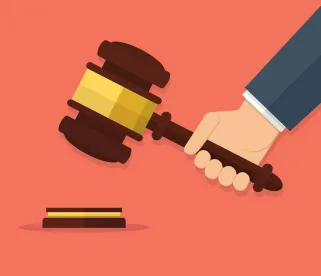Hold on to your britches everyone. A court in the District of Minnesota just issued a summary judgment ruling with two first-in-the-nation holdings. The first, that the Third Circuit’s holding in Dominguez and the Second Circuit’s holding in King are “more persuasive” than Marks, and that equipment must have the “present capacity” to randomly or sequentially generate numbers to be considered an ATDS. The second, that to determine whether there has been a TCPA violation in the context of a wrong number, “the Court must consider the reasonableness of the caller’s reliance on a prior number holder’s express consent.”
In Stewart L. Roark v. Credit One Bank, N.A., No. CV 16-173 (PAM/ECW), 2018 WL 5921652 (D. Minn. Nov. 13, 2018) Roark and Credit One brought cross summary judgment motions as to whether Credit One’s telephone system qualified as an ATDS.
The Court took a familiar path in granting summary judgment in favor of Credit One on the basis that there was no dispute that the equipment it used to call Roark was an ATDS. The Court first found that the D.C. Circuit not only overruled the 2015 FCC Ruling, but also overruled the 2003 and 2008 “rulings that determined that predictive dialers systems are autodialers.” It then considered the landscape of ATDS rulings out of our Circuit Courts and chose to follow Second Circuit’s opinion in King and Third Circuit’s opinion in Dominguez because they were “more persuasive” than the Ninth Circuit’s opinion in Marks. When combining the Second and Third Circuit’s holdings in those cases, the court found that an ATDS must have the “present capacity to generate random or sequential numbers to dial.” And because the court found summary judgment in favor of Credit One was warranted because “there is no evidence in the record that [Credit One’s systems] are presently used to generate and dial random or sequential numbers.”
The Court’s holding on this point is unique for a couple of reasons. It’s the first time a court outside of the Ninth Circuit has declined to follow Marks. But even better, it’s the first court to combine the “present capacity” holding in King, and the “random or sequential number generation” holding in Dominguez in formulating its own holding that equipment must have the “present capacity” (not just the “potential capacity”) to randomly or sequential generate numbers to be called. Fantastic stuff.
But it gets even better! While the Court’s holding resolved the ATDS claims, that still left claims relating to prerecorded messages left on Roark’s voicemail. There were a total of four at issue. In addressing this part of Roark’s claim, the Court started by recognizing that – following ACA Int’l – it had to “consider the reasonableness of the caller’s reliance on a prior number holder’s express consent,” to determine whether there was a TCPA violation in the case of a reassigned number. While this is clear enough in ACA Int’l, this is the first lower court to recognize that this is the proper analysis when considering reassigned number claims.
And in examining the record, the Court held that Credit One was reasonably relying on the consent of the prior subscriber based upon these facts:
(1) Credit One had the express consent to call the prior subscriber;
(2) Credit One had no reason to know that the phone number had been reassigned because:
(a) It received no notice from Roark of the reassignment; and
(b) The caller I.D. for the number still populated with the prior subscriber’s information.
Based upon these facts – which center on Credit One’s lack of notice of the reassignment – the Court held that “[i]t was reasonable for Credit One to rely on [the prior subscriber’s] prior express consent to call his number, and therefore summary judgment on this issue is proper.”
The Court’s holding in this respect is a major one, and helps bring some much needed common sense to the realm of reassigned numbers. Let’s hope that we see more courts follow suit in the future.



 />i
/>i

